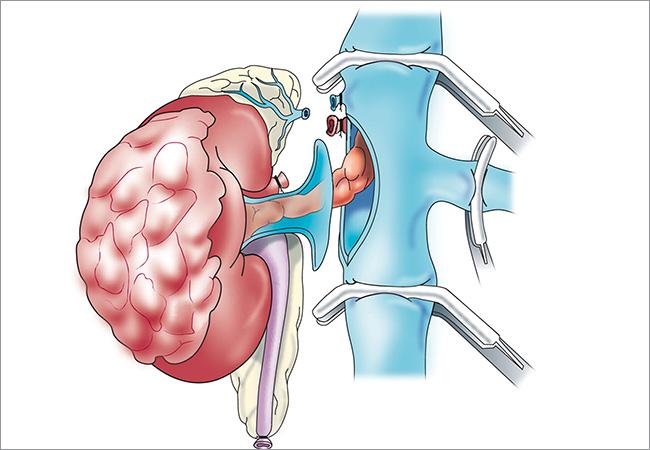Radical Nephrectomy: Surgical Procedure for Kidney Cancer Treatment
Understanding Radical Nephrectomy
Kidney cancer, also known as renal cell carcinoma, is a potentially life-threatening disease that affects the kidneys. One of the primary treatment options for kidney cancer is a surgical procedure called radical nephrectomy. This comprehensive guide aims to provide an exact explanation of radical nephrectomy, including its benefits, risks, and recovery process.
What is Radical Nephrectomy?
Radical nephrectomy is a surgical procedure that involves the removal of the entire affected kidney, including the surrounding tissues, nearby lymph nodes, and sometimes the adrenal gland. It is typically recommended for patients with localized kidney cancer or when the tumor has grown beyond the confines of the kidney.
 Benefits of Radical Nephrectomy
Benefits of Radical Nephrectomy
Cancer Removal: Radical nephrectomy aims to completely remove the cancerous kidney, reducing the risk of cancer spreading to other parts of the body.
Improved Survival Rates: For localized kidney cancer, radical nephrectomy has shown to significantly improve survival rates, especially when the cancer is confined to the kidney.
Symptom Relief: Radical nephrectomy can help alleviate symptoms such as pain, blood in the urine, and urinary tract infections associated with kidney cancer.
Risks and Considerations
While radical nephrectomy is generally a safe procedure, it does carry some risks and considerations, including:
Surgical Complications: As with any major surgery, there are risks of bleeding, infection, blood clots, and adverse reactions to anesthesia.
Loss of Kidney Function: Removing one kidney through radical nephrectomy will leave the patient with a single functioning kidney. It is crucial to ensure the remaining kidney is healthy and can adequately perform its functions.
Potential Long-Term Effects: Some patients may experience long-term effects such as chronic kidney disease, high blood pressure, and an increased risk of cardiovascular problems. Regular follow-up care is essential to monitor and manage these potential complications.
Recovery Process
After radical nephrectomy, the patient will typically stay in the hospital for a few days for monitoring and pain management. The recovery process may involve:
Pain Management: Medications will be provided to manage post-surgical pain, and the healthcare team will guide the patient on proper pain management techniques.
Physical Activity: Initially, the patient will need to rest and gradually increase physical activity as advised by the healthcare team. Regular exercise can aid in a faster recovery.
Follow-up Care: Regular follow-up appointments will be scheduled to monitor the patient's overall health, kidney function, and to address any concerns or complications that may arise.
What is radical nephrectomy?
Radical nephrectomy is a surgical procedure for removing the entire affected kidney, surrounding tissues, and sometimes the adrenal gland, commonly used to treat kidney cancer.
What are the benefits of radical nephrectomy?
Radical nephrectomy can help eliminate cancer, improve survival rates, and alleviate symptoms associated with kidney cancer.
What are the risks of radical nephrectomy?
Risks include surgical complications, loss of kidney function, and potential long-term effects such as chronic kidney disease and high blood pressure.
What is the recovery process after radical nephrectomy?
The recovery process involves pain management, gradually increasing physical activity, and regular follow-up care to monitor kidney function and address any complications.
Is radical nephrectomy the only treatment option for kidney cancer?
While radical nephrectomy is a common treatment, there are other options such as partial nephrectomy, targeted therapy, immunotherapy, and radiation therapy, which may be considered based on the specific case.
What is the success results of Radical Nephrectomy?
The success rate of radical nephrectomy in terms of complete removal of kidney cancer and improved survival varies depending on the stage and characteristics of the cancer, with overall five-year survival rates ranging from 50% to 90%.
We are associated with experienced and highly skilled medical professionals. We use the latest medical technology available in the world and we provide medical services in collaboration with JCI & NABH Certified hospitals only. Our services include various types of treatment and organ restructuring and transplant.
